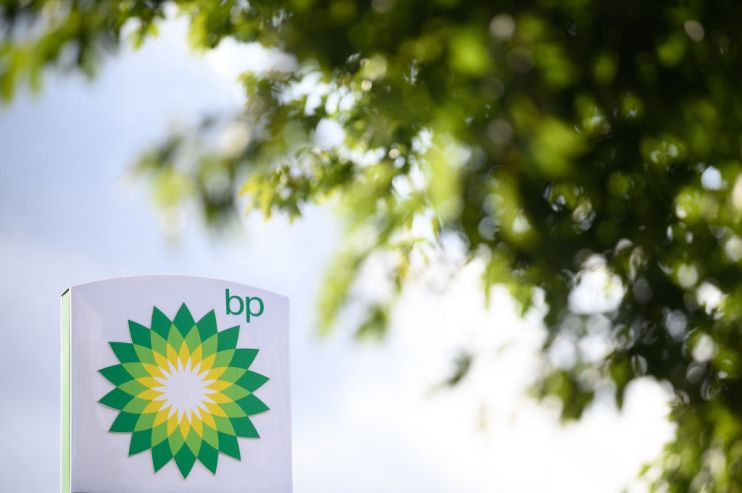BP boss Looney’s pay doubles to £10m – 170 times more than his average employee

The boss of BP earned more than 170 times more than his average employee last year as his pay doubled to around £10 million after the company benefited from the Russian full-scale invasion of Ukraine.
New figures from the oil giant showed that Bernard Looney’s total pay packet increased from around £4.5 million in 2021.
The company’s profit doubled between 2021 and 2022, but the increase was largely thanks to a long-term incentive that was paid to Mr Looney.
This means that Mr Looney’s remuneration was around 172 times higher than the average employee at the oil and gas giant.
Compared to the 25th percentile – that is to say an employee whose pay was less then three in four of their colleagues’ – Mr Looney’s pay was 421 times higher.
Those in the 25th percentile also saw their pay increase, going from £21,450 in 2021 to £23,810 a year later.
The average salary for workers across all employers in the UK is around £33,000.
BP fared well last year thanks in no small part to the day that Vladimir Putin decided to send tanks across the border in an attempt to annex the entirety of Ukraine.
As cruise missiles started falling on Kyiv and other Ukrainian cities the price of oil and gas ticked upwards last year, peaking in August and June respectively.
The cost of gas in particular spiked for European customers. Oil is largely transported by ship around the world so it was easier for other countries to supply oil to Europe.
But there are many fewer gas ships in the world, so as supply from Russian pipelines dried up the price of gas peaked at somewhere around 15 times its historical average.
BP and its rivals around the world helped avoid a massive energy crunch in Europe by supplying oil and gas to the continent.
But it came at a price as the energy they sold was much more valuable to their customers.
By January this year the average household energy bill was nearly £4,300 per year – four times where it had been before the crisis.
The Government has racked up a massive bill to help households so they did not have to shoulder the full amount themselves.
But BP had its best ever year as a result. Profit doubled to around 28 billion dollars (£23.4 billion).
Jonathan Noronha-Gant, senior fossil fuels campaigner at Global Witness, said: “People everywhere struggling to feed their families or warm their homes in the harsh winter months, have every right to be angry that the CEO of a huge energy firm is netting millions of pounds in pay. This enormous pay package is a kick in the teeth to all hard-working people being faced with a cost-of-living crisis.
“Nothing could be a starker example of the gross inequality that sits at the very heart of our broken energy system.
“For a rich few to be seeing their already extraordinary wealth bolstered, precisely because bills have been so unaffordable for the majority, is a twisted irony. At the very least the governments should be implementing a proper windfall tax on both profits and CEO pay.”
Press Association – August Graham
Looney’s green ambitions
By Nicholas Earl
At the end of February, BP boss Bernard Looney called for an “orderly” transition to renewable energy, which will require investment in both future green energy projects and “today’s energy system, which is predominantly an oil and gas system.”
“To be clear, orderly is not another word for slow. What it does mean is keeping affordable energy flowing, where and when it’s needed. Investing in the transition and investing in energy security,” Looney told a London conference.
The chief executive pointed to BP’s latest investment pledges as examples of this dual approach – with the fossil fuel titan today committing a further $16bn to the global energy system over the current decade, including a 50/50 split on pledges for oil and gas and green energy projects.
This would mean investment in EV charging and sustainable aviation fuel alongside oil and gas investments.
In Looney’s view, this was part of the company’s shift from an oil and gas producer to an “integrated energy company.”
“We’re putting shovels in the ground and we’re putting, I believe, our money where our mouth is,” Looney said. “In the past three years, the capital we’ve invested in our transitional growth engines has gone from three per cent to over 30 per cent.”
Looney was speaking at the International Energy Week conference in London, where dozens of protestors had gathered outside the Hyde Park venue to protest BP’s continued operation of oil and gas projects and investment in fossil fuels – their chants audible from the conference room.
The company recently announced it made a record £23bn profit for the year, reigniting calls for a further windfall tax.
BP follows Shell’s mega-profits and pay boost
This comes after the former Shell boss enjoyed a hefty bump-up in his paypacket last year, before leaving the energy giant in January.
His pay was revealed in the oil and gas giant’s annual report and accounts and follows the company reporting a monster annual profit of £32.2bn for 2022 powered by soaring oil and gas prices following Russia’s invasion of Ukraine.